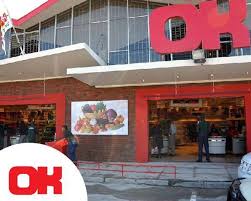The ongoing rehabilitation of roads in Harare has sparked outrage among residents, as the government gears up for the upcoming 44th Southern African Development Community (SADC) Summit scheduled for August this year.
With Harare set to host the forthcoming summit, which holds the promise of global recognition and bolstering Africa’s international relations, preparations are underway to ensure the city’s infrastructure meets the standards expected by delegates.
The summit, comprising 16 member states, will convene at the new Parliament in Mount Hampden, situated approximately 25 kilometers northwest of Harare. The refurbishment of the 25-kilometer stretch from Julius Nyerere Way via Bindura Road underscores the government’s commitment to accommodating the anticipated influx of delegates.
Priority is being given to roads leading to luxury hotels where delegates will be accommodated, as well as those connecting the airport to the main convention center.
Tinotenda Kichini, a local taxi driver, voiced the frustration felt by many residents, highlighting the stark contrast between the attention given to certain roads and the neglected state of others.
Meanwhile, Vice-President Constantino Chiwenga has assured that substantial progress has been made in rehabilitating roads leading to the new Parliament, with the project expected to be completed within the specified timeframe.
However, concerns linger regarding the sustainability of this newfound commitment to road repairs. Will the current zeal extend beyond the routes designated for the summit, or will the city regress into its usual state of disrepair once the event concludes?
Critics have condemned the government’s selective approach to road rehabilitation, citing misplaced priorities. The last-minute efforts to beautify certain routes have been deemed politically motivated, aiming to impress visiting delegates at the expense of addressing longstanding issues affecting Zimbabweans.
Economics professor Gift Mugano emphasised the fiscal challenges facing the country, attributing limited revenue inflow to factors such as drought-induced economic strain. He questioned the government’s decision to prioritise road repairs over essential services like healthcare, suggesting that resources could be better allocated to meet pressing needs.
Despite skepticism surrounding the quality and motives behind the rapid infrastructure changes, political analyst Rashweat Mukundu acknowledged Zimbabwe’s capacity to rehabilitate its roads. However, he stressed the importance of cost-effectiveness and equitable distribution of resources to ensure sustainable development across the country.
As Harare undergoes a facelift in preparation for the SADC Summit, the broader implications of these infrastructure improvements on the nation’s development trajectory remain subject to scrutiny and debate.
Source NewsDay











